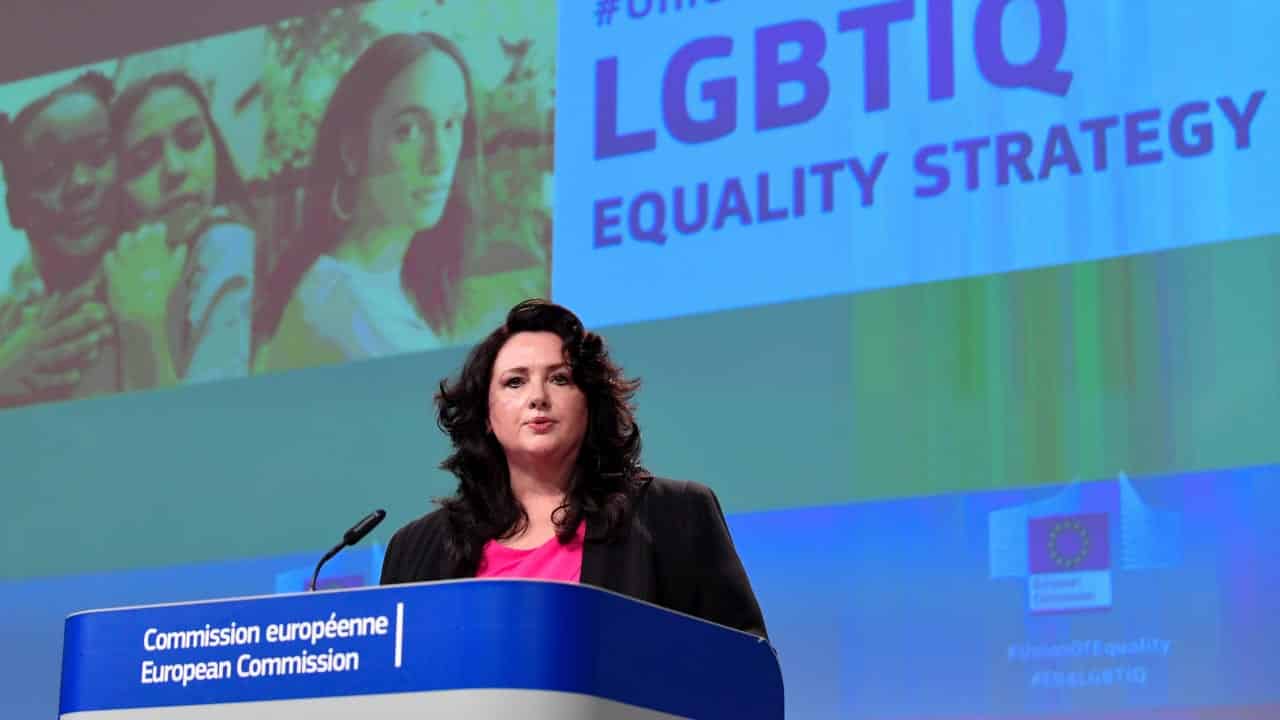EU strategy to support queer rights

The worrying developments, which are reflected, among other things, in the establishment LGBTQ-free zones in Poland underline that the question of how to strengthen queer rights is increasingly a political issue.
A new EU strategy was presented on 11 November 2020. On its basis, the equality of queers is to be further advanced and discrimination within society is to be fought.
Homophobia in everyday life to be punished more severely
One of the most important points that play a role in connection with the ambitious goals is the plan to punish crimes committed on the basis of homophobia more severely and to take a closer look. In the future, hate attacks against queers will be punished more severely.
Another point: the international recognition (also cross-border) of same-sex marriages or partnerships and their right to adopt a child.
Partly due to the fact that the goals are to be pursued throughout the EU, there is a high probability that a kind of "international idea" will emerge here that transports tolerance and openness beyond national borders. The closer the community of states works together here, the better. However, it remains to be seen to what extent the more conservative countries will now take their cue from their open neighbours.
Open vs. conservative?!
Certainly, no one needs to be a political expert to realise that there are sometimes significant differences within the EU in terms of how queers or the rights of the LGBTQ community are dealt with.
This raises the question of whether particularly open, tolerant EU states might want to use the opportunity to persuade their more conservative neighbours to give in. However, those responsible rejected such accusations on Wednesday. They said it was not about spreading a certain image, but rather about protecting the rights of people within the EU. All people.
Queers should thus also have the opportunity to feel safe without fear of discrimination and hate.
A concept based on four points
The EU's goals to strengthen queer rights are essentially based on four points.
So with their help:
- Preventing discrimination
- Safety guaranteed for all concerned
- Inclusion promoted
- The Position be claimed by the EU in the context of sound human equality.
However, the steps that will be necessary to achieve these goals are not to be determined "from above". After all, each EU country is characterised by a different starting situation. Therefore, it is up to the individual countries to develop their own strategies.
In this context, the EU only plays a monitoring or reviewing role.
How promising is the EU strategy?
At this point in time, it is certainly difficult to assess whether the project to strengthen LGBTQ rights will be crowned with success. After all, the outcome depends to a large extent on the initiative of the individual countries.
If you take a little time to compare, for example, the current situation of queers in Poland or Hungary with the situation in Germany, it is probably hard to imagine that at some point uniform regulations will prevail in the entire EU area with regard to marriage, adoption and so on.
However, the EU strategy is an important start on the way to a (hopefully) positive development. The fact that the individual countries themselves are tasked with developing strategies forces those involved, among other things, to take a look at the existing status quo themselves. In this way, possibly existing optimisation potential can perhaps even be discovered a little faster?
You will also like this matching post: Lithuania suddenly stands up for the LGBTQ community
Keine Kommentare vorhanden